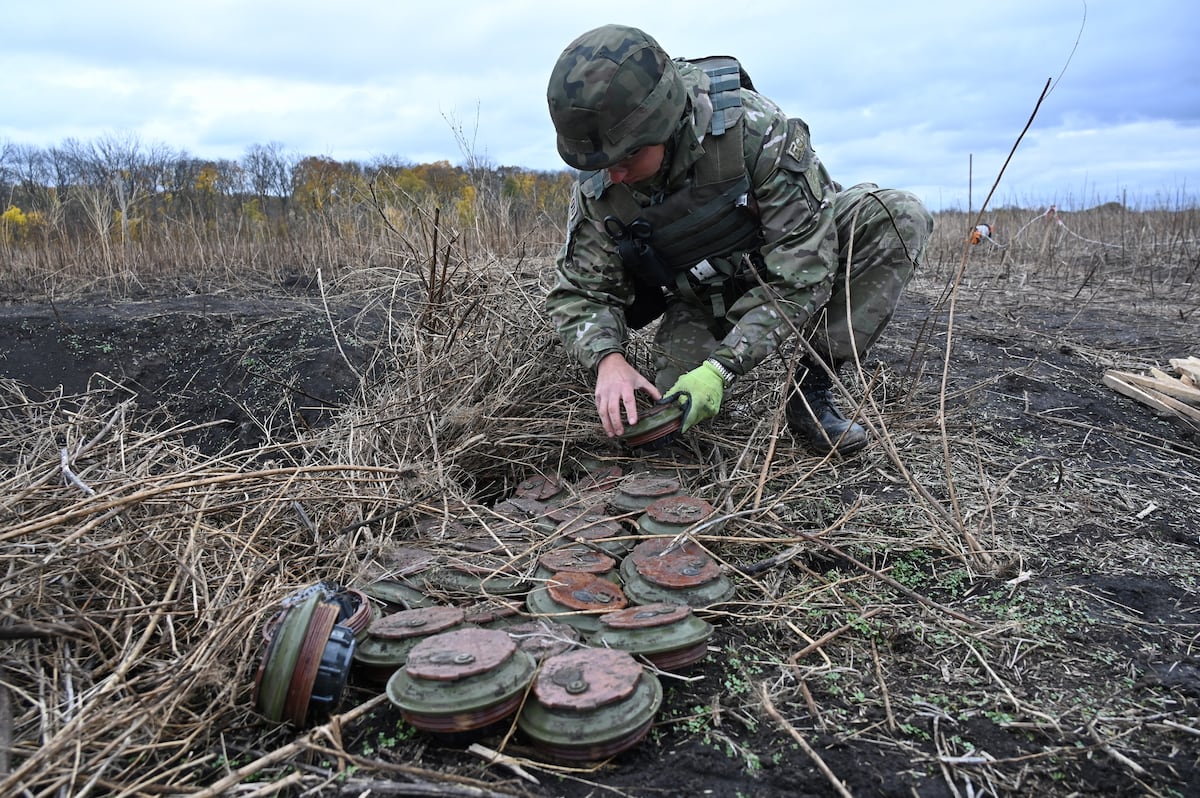THE HAGUE, Netherlands — Ukrainian President Volodymyr Zelensky signed a decree on June 29 initiating his country’s withdrawal from the Ottawa Convention, the international treaty banning anti-personnel landmines.
The 1997 Ottawa Convention prohibits the use, production, stockpiling and transfer of anti-personnel mines, weapons designed to be buried or hidden underground that often maim or kill victims long after conflicts end. More than 160 countries have signed the treaty, although notably neither the United States nor Russia is a party to the agreement.
“Ukraine is compelled to give unconditional priority to the security of its citizens and the defence of the state,” Ukraine’s foreign ministry said in a statement, calling the decision “difficult but necessary” to protect against “horrific Russian atrocities.”
RELATED
The withdrawal still requires parliamentary ratification and formal notification to the United Nations before taking effect. Under the treaty’s provisions, withdrawal normally occurs six months after notification, but cannot take effect while a signatory is engaged in armed conflict.
Ukrainian lawmaker Roman Kostenko, secretary of the parliamentary committee on national security, justified the move by pointing to Russia’s extensive use of landmines. “Russia is not a party to this convention and is using mines on a massive scale against both our military and civilians,” Kostenko wrote on Facebook. “We cannot remain bound by restrictions when the enemy faces none.”
Ukraine is not alone in abandoning the treaty. Several NATO allies bordering Russia have taken similar steps in recent months, with Latvia and Lithuania withdrawing in April and May, respectively, followed by Finland and Poland in June. Estonia has also approved withdrawal measures.
The decision comes as Ukraine has become the world’s most heavily mined country, with humanitarian organizations estimating it could take up to 30 years to clear contaminated areas. Ukrainian officials argue that Russia’s asymmetric advantage in mine deployment has left them at a severe disadvantage.
“Russia has never been a party to this convention and uses anti-personnel mines in an extremely cynical manner,” Zelensky said in his daily address, describing mines as the “trademark of Russian killers.”
Ukraine originally ratified the Ottawa Convention in 2005, and at the time held one of the world’s largest stockpiles of anti-personnel mines, surpassed only by China, Russia, the US and Pakistan—none of which are treaty parties.
The foreign ministry emphasized that when Ukraine signed the treaty, “such circumstances did not exist and could not have been foreseen,” referring to Russia’s full-scale invasion that began in February 2022.
Human rights groups have previously condemned the withdrawal decisions by Ukraine’s allies, highlighting the long-term civilian risks posed by landmines that can remain dangerous for decades after conflicts end and often disproportionately affect children.
According to Human Rights Watch, both Russia and Ukraine have employed at least 13 types of anti-vehicle mines.
Linus Höller is a Europe correspondent for Defense News. He covers international security and military developments across the continent. Linus holds a degree in journalism, political science and international studies, and is currently pursuing a master’s in nonproliferation and terrorism studies.
Read the full article here








Leave a Reply